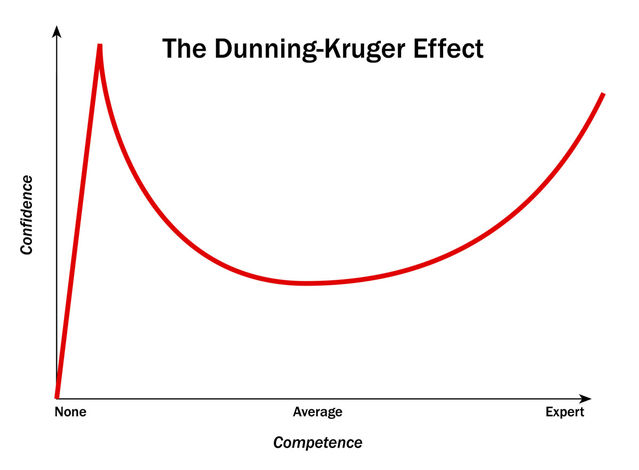Nichols, T. (2017). How America Lost Faith in Expertise. Foreign Affairs. https://www.foreignaffairs.com/articles/united-states/2017-02-13/how-america-lost-faith-expertise
The larger discussions, from what constitutes a nutritious diet to what actions will best further U.S. interests, require conversations between ordinary citizens and experts. But increasingly, citizens don’t want to have those conversations. Rather, they want to weigh in and have their opinions treated with deep respect and their preferences honored not on the strength of their arguments or on the evidence they present but based on their feelings, emotions, and whatever stray information they may have picked up here or there along the way.
Hofstadter argued that this overwhelming complexity produced feelings of helplessness and anger among a citizenry that knew itself to be increasingly at the mercy of more sophisticated elites. “
Credentialism can run amok, and guilds can use it cynically to generate revenue or protect their fiefdoms with unnecessary barriers to entry. But it can also reflect actual learning and professional competence, helping separate real experts from amateurs or charlatans.
Experts are often wrong, and the good ones among them are the first to admit it…. Yet these days, members of the public search for expert errors and revel in finding them—<b>not to improve understanding but rather to give themselves license to disregard all expert advice they don’t like.<b>
Hofstadter argued that this overwhelming complexity produced feelings of helplessness and anger among a citizenry that knew itself to be increasingly at the mercy of more sophisticated elites. “
Credentialism can run amok, and guilds can use it cynically to generate revenue or protect their fiefdoms with unnecessary barriers to entry. But it can also reflect actual learning and professional competence, helping separate real experts from amateurs or charlatans.
Experts are often wrong, and the good ones among them are the first to admit it…. Yet these days, members of the public search for expert errors and revel in finding them—<b>not to improve understanding but rather to give themselves license to disregard all expert advice they don’t like.<b>
The convenience of the Internet is a tremendous boon, but mostly for people already trained in research and who have some idea what they’re looking for. It does little good, unfortunately, for a student or an untrained layperson who has never been taught how to judge the provenance of information or the reputability of a writer.
Libraries, or at least their reference and academic sections, once served as a kind of first cut through the noise of the marketplace. The Internet, however, is less a library than a giant repository where anyone can dump anything. In practice, this means that a search for information will rely on algorithms usually developed by for-profit companies using opaque criteria. Actual research is hard and often boring. It requires the ability to find authentic information, sort through it, analyze it, and apply it.
Government and expertise rely on each other, especially in a democracy. The technological and economic progress that ensures the well-being of a population requires a division of labor, which in turn leads to the creation of professions. Professionalism encourages experts to do their best to serve their clients, respect their own knowledge boundaries, and demand that their boundaries be respected by others, as part of an overall service to the ultimate client: society itself.
Dictatorships, too, demand this same service of experts, but they extract it by threat and direct its use by command. This is why dictatorships are actually less efficient and less productive than democracies (despite some popular stereotypes to the contrary). In a democracy, the expert’s service to the public is part of the social contract.
Too few citizens today understand democracy to mean a condition of political equality in which all get the franchise and are equal in the eyes of the law. Rather, they think of it as a state of actual equality, in which every opinion is as good as any other, regardless of the logic or evidentiary base behind it.
#DunningKrugerEffect #metacognition #democracy #science #academy #fakenews #conspiracytheories #politics #idiocracy #InformationTechnology #Internet
#DunningKrugerEffect #metacognition #democracy #science #academy #fakenews #conspiracytheories #politics #idiocracy #InformationTechnology #Internet
